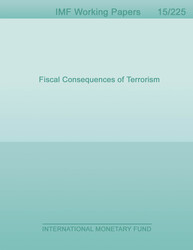
Fiscal Consequences of Terrorism
This paper provides an empirical analysis of how the frequency and severity of terrorism affect
government revenue and expenditure during the period 1970–2013 using a panel dataset on
153 countries. We find that terrorism has only a marginal negative effect on tax revenue
performance, after controlling for economic and institutional factors. This effect is also not
robust to alternative specifications and empirical strategies. On the other hand, we find strong
evidence that terrorism is associated with an increase in military spending as a percent of GDP
(and a share of total government expenditure). Our estimations reveal that this impact is
greater when terrorist attacks are frequent and result in a large number of fatalities. Empirical
findings also support the view that public finances in developing and low-income countries
are more vulnerable to terrorism than those in countries that are richer and diversified.
Publication date: October 2015
ISBN: 9781513510965
$18.00
Add to Cart by clicking price of the language and format you'd like to purchase
Available Languages and Formats
| English |
Prices in red indicate formats that are not yet available but are forthcoming.
Topics covered in this book
This title contains information about the following subjects.
Click on a subject if you would like to see other titles with the same subjects.
Economics- Macroeconomics , Economics / General , International - Economics , tax , revenue , attacks , share , General , National Security and War , All Countries
Summary
Copyright © 2010 - 2024
Powered by:
AIDC



